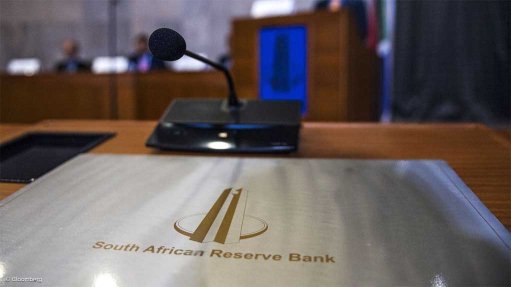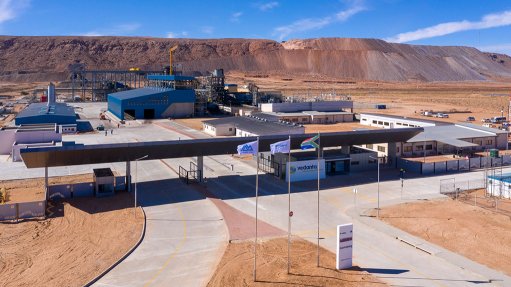Electrical specialist says load curtailment in Ekurhuleni should be respected, or more outages may ensue
With the City of Ekurhuleni having entered into a load curtailment agreement with national power utility Eskom, this mandatory energy reduction has been met with some protest by businesses, but electrical control equipment provider CBI-electric:low voltage engineering executive Dr Andrew Dickson says the alternative is worse.
Eskom took over control of loadshedding in Ekurhuleni in March, after the city reportedly failed to execute power outages when required. The metro had since negotiated a load curtailment agreement with Eskom, which requires that businesses reduce their electricity consumption by 30%.
Dickson explains that businesses are keenly aware that loadshedding leads to sudden production stops and thereby reduced output and lower profitability, with some companies needing up to 24 hours to return equipment to operation.
“Placed in a situation where outages can occur multiple times a day, this can bring business to a standstill and may force several companies to close,” he notes, adding that this could have significant impacts on Ekurhuleni as an industrial hub that contributes about 6.8% of South Africa’s gross domestic product, and makes up 19.7% of Gauteng’s economy.
“Looking at the bigger picture, load curtailment puts power back into business owners’ hands. By voluntarily reducing their electricity consumption, they can alleviate strain on the grid and avoid the complete blackout of electricity supply – sometimes multiple times day – thereby minimising disruptions to their operations and the economy at large.”
Dickson urges companies to implement load reduction plans, as Eskom continuously monitors the electricity use of its curtailment customers to ensure that agreed-upon reductions are being achieved.
If three instances of noncompliance are detected, loadshedding will be reinstated, he warns.
Dickson highlights that the first step should be to measure how much power is being consumed as well as where, why and when.
“This information can then be used to build a plan that takes energy demand patterns into account. For example, this could help companies change when they use the most power by restructuring their operations, and determine which manufacturing processes should happen when in order to minimise peaks and dips in daily power usage and adjust how shift structures work to optimise the manufacturing process,” he explains.
Using timers or load controllers to schedule when loads turn on or off could also help businesses reduce electricity wastage. These could be deployed to prevent systems such as air conditioners, geysers and hydro boils from running unnecessarily after business hours.
Load controllers, combined with room occupancy sensors, could also be used to switch off electrical equipment in unoccupied offices or meeting rooms so that power is only consumed when and where it is needed.
“Additional electricity saving measures could include installing natural lighting options such as light pipes instead of electric lighting and putting in draught-doors to reduce heating and cooling costs,” Dickson states.
He concludes that industrial businesses must change their consumption patterns so that the country can not only keep the lights on, but also keep producing, profiting and propelling economic prosperity.
“If we fail to do so, the fallout will affect us all.”
CBI is a subsidiary of JSE-listed industrial group Reunert, with operations across Africa, Asia, Australia, Europe and the US.
Article Enquiry
Email Article
Save Article
Feedback
To advertise email advertising@creamermedia.co.za or click here
Press Office
Announcements
What's On
Subscribe to improve your user experience...
Option 1 (equivalent of R125 a month):
Receive a weekly copy of Creamer Media's Engineering News & Mining Weekly magazine
(print copy for those in South Africa and e-magazine for those outside of South Africa)
Receive daily email newsletters
Access to full search results
Access archive of magazine back copies
Access to Projects in Progress
Access to ONE Research Report of your choice in PDF format
Option 2 (equivalent of R375 a month):
All benefits from Option 1
PLUS
Access to Creamer Media's Research Channel Africa for ALL Research Reports, in PDF format, on various industrial and mining sectors
including Electricity; Water; Energy Transition; Hydrogen; Roads, Rail and Ports; Coal; Gold; Platinum; Battery Metals; etc.
Already a subscriber?
Forgotten your password?
Receive weekly copy of Creamer Media's Engineering News & Mining Weekly magazine (print copy for those in South Africa and e-magazine for those outside of South Africa)
➕
Recieve daily email newsletters
➕
Access to full search results
➕
Access archive of magazine back copies
➕
Access to Projects in Progress
➕
Access to ONE Research Report of your choice in PDF format
RESEARCH CHANNEL AFRICA
R4500 (equivalent of R375 a month)
SUBSCRIBEAll benefits from Option 1
➕
Access to Creamer Media's Research Channel Africa for ALL Research Reports on various industrial and mining sectors, in PDF format, including on:
Electricity
➕
Water
➕
Energy Transition
➕
Hydrogen
➕
Roads, Rail and Ports
➕
Coal
➕
Gold
➕
Platinum
➕
Battery Metals
➕
etc.
Receive all benefits from Option 1 or Option 2 delivered to numerous people at your company
➕
Multiple User names and Passwords for simultaneous log-ins
➕
Intranet integration access to all in your organisation


















